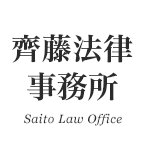Best Assault & Battery Lawyers in Tokyo
Share your needs with us, get contacted by law firms.
Free. Takes 2 min.
List of the best lawyers in Tokyo, Japan
About Assault & Battery Law in Tokyo, Japan
Assault and Battery, although often mentioned together, are distinct offenses under Tokyo, Japan's legal framework. Assault generally refers to a threat or attempt to inflict physical harm on someone, which causes the victim to fear for their immediate safety. Battery, on the other hand, involves actual physical contact or harm. Japan's Penal Code governs these offenses, emphasizing penalties based on the severity of the injuries caused and the circumstances surrounding the incident.
Why You May Need a Lawyer
Legal assistance is crucial in Assault & Battery cases for a myriad of reasons. Individuals accused of these offenses face potentially severe consequences, including imprisonment and substantial fines. Victims seeking justice and compensation for their injuries also require adept legal representation to navigate the complexities of Japan's legal system. Moreover, with potential criminal and civil implications, experienced counsel can help in defense or in pursuing claims, ensuring that the parties involved are justly treated under the law.
Local Laws Overview
Japanese law classifies assault (暴行) and battery as criminal offenses, with the distinction largely hinging on the presence and severity of physical injury. Minor offenses without injury may be prosecuted under assault charges, leading to lighter penalties such as fines. More severe incidents, especially those resulting in injury, can be deemed as battery, carrying heavier penalties including imprisonment. It's also important to note that Japan's legal system does not follow a jury system as in the United States, and guilt and sentencing are determined by judges.
Frequently Asked Questions
What constitutes assault in Tokyo, Japan?
Assault involves either attempting to use or using force against another person or putting someone in fear of imminent harm. No physical contact needs to occur for an act to be considered assault.
What is considered battery in Tokyo, Japan?
Battery requires unlawful physical contact or harm. The extent of injury can significantly influence the severity of charges and penalties imposed.
Are there self-defense laws in Tokyo, Japan?
Yes, self-defense is recognized, but the force used in defense must be proportional to the threat faced. Excessive use of force can lead to criminal charges.
What should I do if I'm accused of assault or battery?
It's crucial to seek legal representation immediately. Avoid discussing the incident with the police or others until you've consulted a lawyer.
What are the potential penalties for assault and battery in Tokyo?
Penalties vary widely, from fines for minor offenses to years of imprisonment for severe cases, especially where there is significant bodily injury.
Can a victim sue for damages?
Yes, victims can pursue civil lawsuits against the perpetrator for compensation related to injuries, emotional distress, and other damages.
How are minors treated under assault and battery laws in Tokyo?
Minors are subject to the juvenile justice system, which focuses more on rehabilitation than punishment, though serious cases can lead to severe consequences.
Is verbal harassment considered assault?
While not classified as assault under criminal law, persistent verbal harassment can lead to charges under Japan's Anti-Stalking Law or other provisions related to threatening behavior.
How does the statute of limitations affect these cases?
The statute of limitations depends on the severity of the offense, ranging from 3 to 15 years. It's vital to report incidents promptly to avoid forfeiting legal rights.
Can I drop charges once they are filed?
In Japan, once a criminal complaint is filed, the decision to pursue or drop the charges primarily rests with the prosecutor, not the victim.
Additional Resources
Individuals seeking legal advice on Assault & Battery in Tokyo may find the following resources useful:
- Japan Federation of Bar Associations (JFBA): Provides legal resources and can help find qualified lawyers.
- Tokyo Metropolitan Police: Offers assistance and information on filing a criminal complaint.
- Legal Support Center: Provides access to legal counsel for those unable to afford private attorneys.
Next Steps
If you require legal assistance in an Assault & Battery case in Tokyo, your next steps should include:
- Contacting a knowledgeable lawyer experienced in criminal law for a consultation.
- Gathering all relevant evidence, including medical records, eyewitness accounts, and any documentation of the incident.
- Discussing with your lawyer the best strategy for your case, whether you're seeking justice as a victim or need defense against accusations.
Lawzana helps you find the best lawyers and law firms in Tokyo through a curated and pre-screened list of qualified legal professionals. Our platform offers rankings and detailed profiles of attorneys and law firms, allowing you to compare based on practice areas, including Assault & Battery, experience, and client feedback.
Each profile includes a description of the firm's areas of practice, client reviews, team members and partners, year of establishment, spoken languages, office locations, contact information, social media presence, and any published articles or resources. Most firms on our platform speak English and are experienced in both local and international legal matters.
Get a quote from top-rated law firms in Tokyo, Japan — quickly, securely, and without unnecessary hassle.
Disclaimer:
The information provided on this page is for general informational purposes only and does not constitute legal advice. While we strive to ensure the accuracy and relevance of the content, legal information may change over time, and interpretations of the law can vary. You should always consult with a qualified legal professional for advice specific to your situation.
We disclaim all liability for actions taken or not taken based on the content of this page. If you believe any information is incorrect or outdated, please contact us, and we will review and update it where appropriate.












